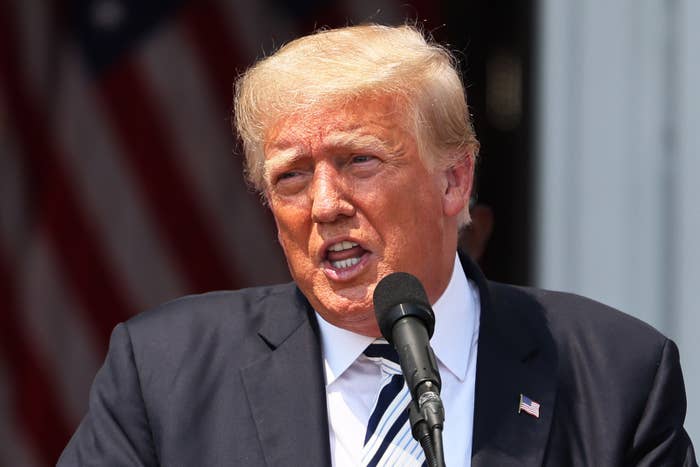
WASHINGTON — A federal judge on Thursday cast doubt on former president Donald Trump’s attempts to keep records tied to the Capitol insurrection secret, pressing his lawyers to provide specific examples of how turning the documents over to a congressional committee would cause irreparable harm.
“Would you agree that the fact that the plaintiff here is no longer a sitting president, it somewhat diminishes the accessibility of the privileges you are arguing?” US District Judge Tanya Chutkan asked Trump’s lawyer during the hearing.
Chutkan heard arguments Thursday from Justin Clark, a Trump attorney suing to restrict Congress’s access to the previous administration's records leading up to Jan. 6 that are now housed in the National Archives. Chutkan didn’t immediately rule on the case, but her pointed questions for Trump’s legal defense suggest she may allow Congress to access White House records.
Unless the court intervenes, the National Archives is set to hand over the documents to the committee by Nov. 12.
In its attempt to investigate the attack on the Capitol, Congress requested records leading up to Jan 6. Trump’s attorney responded with a letter requesting some of the documents be withheld because of executive privilege. In a letter to the National Archives, White House counsel Dana Remus wrote that President Joe Biden would not uphold Trump's claim of executive privilege. Trump can only designate privilege over documents if he has the backing of the current president. In a last-ditch effort to stop Congress from reviewing documents leading up to the Jan. 6 attack, Trump sued to block the National Archives from releasing the records to the committee.
Clark also suggested the court should settle the privilege disagreements between Biden and Trump by first reviewing each document. Shapiro pushed back on the idea saying there is no case law that suggests a document-by-document review is necessary and such a process would delay the reproduction of records.
Trump’s attorney relied heavily on a Supreme Court decision that found the lower courts did not take adequate account of the separation of powers in resolving disputes over congressional subpoenas seeking personal information of a sitting president. Chutkan, however, questioned whether the nature of the privilege has changed because Trump is no longer president and Biden has refused to back Trump’s privilege claims.
Chutkan said that the Supreme Court case and the Jan. 6 investigation were somewhat different, pointing to the period of time and types of records requested in both circumstances. “These documents are thought to further Congress's oversight into the events of January 6,” the judge said, adding that “they only seek documents concerning governmental activity...and the former president’s contacts with officials and actions and statements on January 6 or relating to that event — not private banking information.”
Chutkan did say some of the requests Congress seeks are “overly broad” and asked Congress’s attorneys to justify their request for documents dating back to April 2020.
“That seems, to me, unbelievably broad,” Chutkan said.
Clark also argued disclosing the records would be irreparably harmful, but Justice Department lawyer Elizabeth Shapiro responded by saying the president has no personal interest in the information.
“The only injury he claims is the injury to the executive branch interests and the current sitting executive has determined that the public interest lies in the production of those records, to Congress, to further investigation,” Shapiro said.
